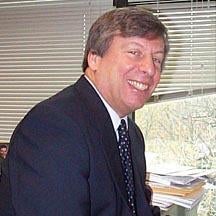
Preface:
Some years ago, the University of California Press asked to publish a collection of my essays. Since I’ve written more than a hundred essays, I wasn’t at all clear which ones to collect or what flag to fly them under. But as I thought about what I’d done, it occurred to me that without ever once writing or trying to write biography, I’d written a number of pieces that focused on individuals in order to get at larger issues. I ended up calling the book Almost Chosen People: Oblique Biographies in the American Grain. Its chapters span four centuries and touch on such people as Ben Franklin, Thomas Jefferson, William Byrd, P. T. Barnum, Horatio Alger, Lewis Mumford, and Dr. Benjamin Spock.
My thought is that we might devote different weeks to different essays in the book, discussing the issues they raise and the possibilities they present. Biography is in bad repute among academic historians, and I suspect that there isn’t much space for biography in the textbooks you teach. But judging by the bestseller lists, readers like biography better than they like history, and your students might like biography better as well. One approach is that we could first examine the biographical interpretation itself and then move on to discuss the strengths and limitations of biography in teaching history and social studies (and in getting students to read and wrestle with nonfiction). I have few settled ideas about any of this, and am therefore open to considering possible alternative approaches as well.
We will explore these issues together, looking at biography both as a technique and as a window on the wider historical settings in which the subjects of the biographies moved. As we identify and analyze the broader issues, I will encourage teachers to apply the specific biographies presented in the seminar to curriculum and to propose other biographies appropriate to their subject area needs. In the end, both teachers of social studies looking for a different approach to history and language arts teachers looking to incorporate nonfiction literature in their classes will find conceptual approaches and content that will promote creation of innovative curriculum units.